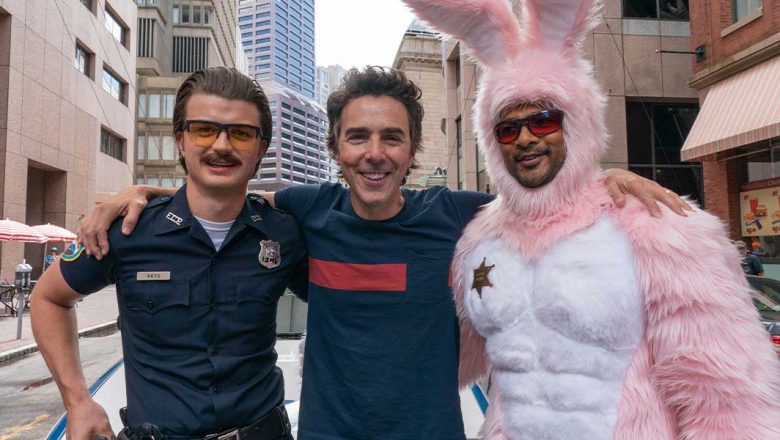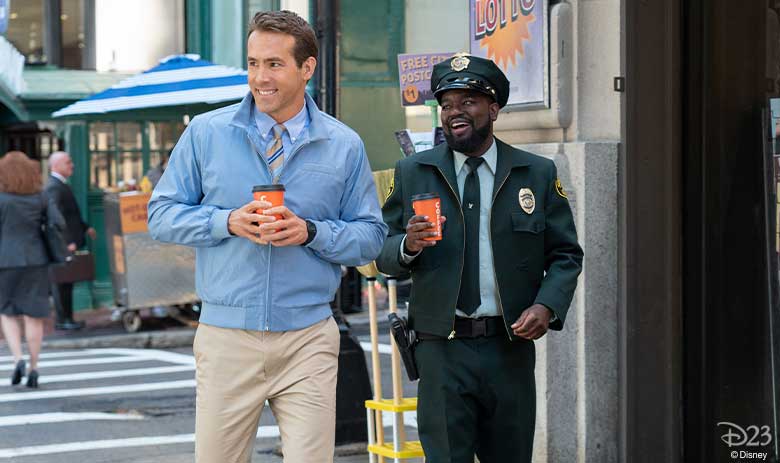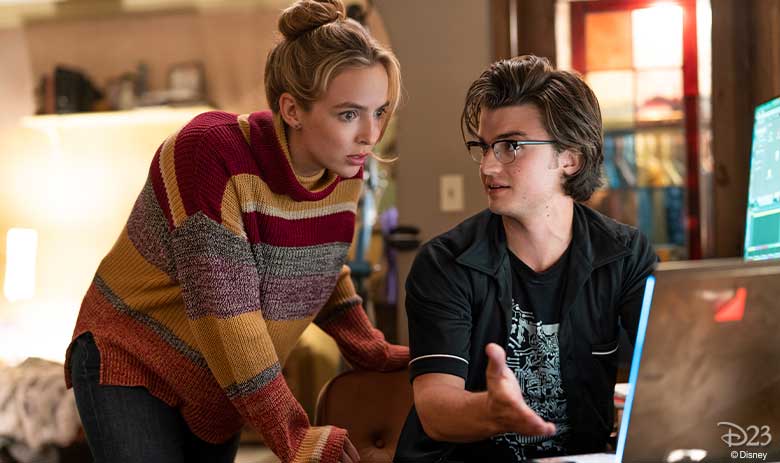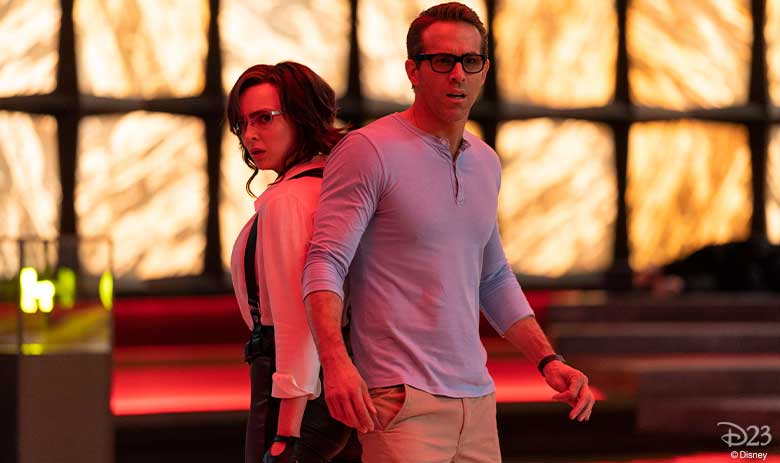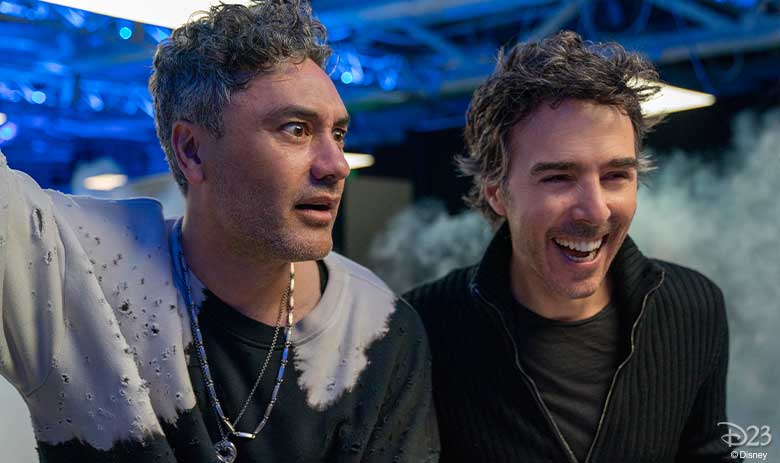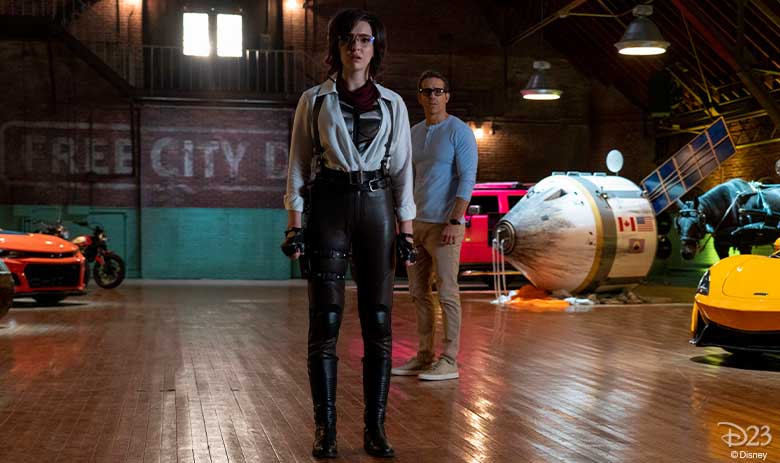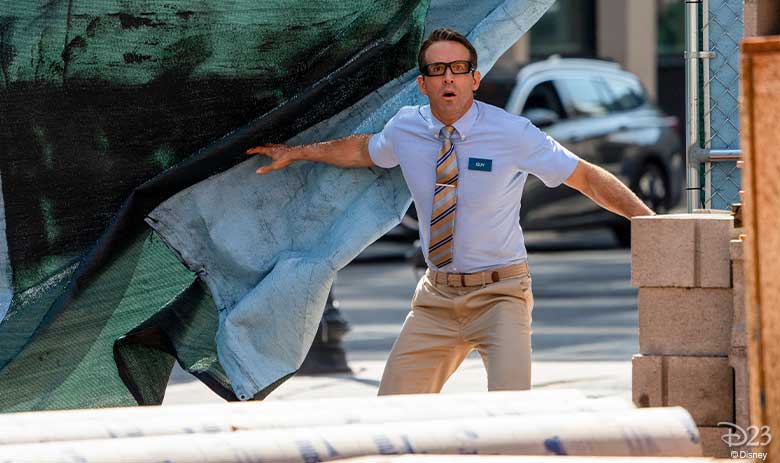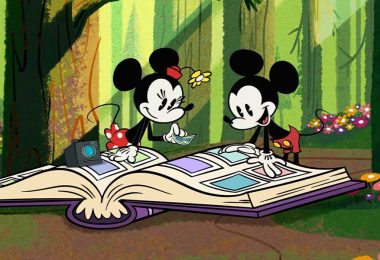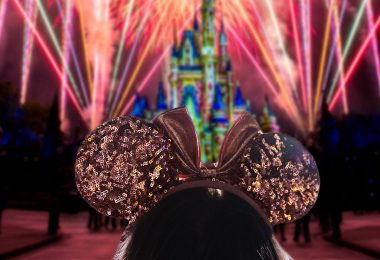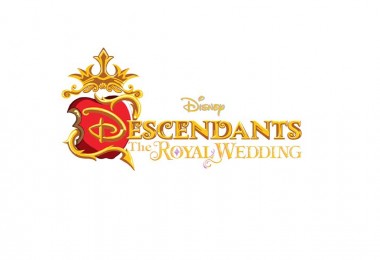By Zach Johnson
It’s a new world.
20th Century Studios’ epic adventure comedy Free Guy releases in theaters this Friday, August 13. Directed by the prolific Shawn Levy, from a screenplay by Matt Lieberman and Zak Penn and a story by Lieberman, it stars Ryan Reynolds, Jodie Comer, Joe Keery, Lil Rel Howery, Utkarsh Ambudkar, and Taika Waititi. The film centers on Guy (Reynolds), a bank teller who exudes positivity and cheerful optimism. Like his best friend, Buddy (Howery), Guy has a zest for life… but all that changes after he discovers that he is actually a background player in the ultra-violent, open-world video game Free City! Distributed by Soonami Studios, run by the greedy mogul Antwan (Waititi), Free City is a wildly popular game in which chaos and devastation reign supreme. Players live an unabashed existence within the game and level-up by committing unprovoked acts of hostility and vandalism.
So… not exactly the best place for a guy like Guy.
It’s the charismatic Molotovgirl (Comer) who helps Guy navigate the game—and also face the fact that the only life he’s ever known isn’t real. Meanwhile, Molotovgirl, whose name in the real world is Millie, is navigating her own battle with Soonami Studios, as she believes Antwan stole the codes from a game she and her friend, Keys (Keery), sold the company. As Guy begins to take on a more active role as a good person, he becomes a champion for both the players and the other NPCs (non-playable characters) and the hero of his own story—one he is rewriting himself. As Guy’s popularity grows, Antwan, realizing the threat he poses to the future of Free City and its sequel, Free City: Carnage, instructs programmer Keys and coder Mouser (Ambudkar) to remove Guy from the game—forever.
Before Free Guy releases in theaters, enjoy our exclusive Q&A with Levy:
D23: When Ryan brought the script to you, what made you want to direct and produce it?
Shawn Levy (SL): I had actually read the script for Free Guy a couple years earlier, long before Ryan sent it to me in the summer of 2018. I liked the script, but what got me truly hooked was Ryan’s vision for the movie: He wanted to make a feel-good action comedy against a videogame backdrop, not merely a videogame movie. Ryan and I had known each other for several years at that point, had always wanted to collaborate, and when we started discussing what Free Guy could be, we got very engaged, very clear on our aspiration for the movie. We wanted to take a script about a background character in a video game and turn it into a movie about all of us and our desire to live more empowered, impactful lives. Saying yes to any movie is a huge commitment, but the shared vision with Ryan of what Free Guy could be was galvanizing, exciting, and led me to an easy “yes.”
D23: How did the idea for Free Guy originate?
SL: This was an original spec screenplay—which means that Matt Lieberman wrote it for free, with no certainty that it would ever get sold or made. The studio bought his script and a few years later, it landed in Ryan’s and my laps. It always had a huge central idea: What if a guy suddenly realized he was a background character inside a video game? Ryan and I took that idea and ran with the themes and relatable aspects of it and developed it into the movie that Free Guy has become.
D23: Free Guy isn’t based on existing IP. Was that freeing, intimidating, or a combination of both?
SL: We live in a world of sequels and franchises and brand awareness. I get it. Those things make a movie less of an uncertain proposition for studios and for audiences. That said, I was captivated by the opportunity to create something new. With both Night at the Museum and Stranger Things, I’ve had the good fortune of launching a few original franchises in my career, and while it’s always scary creating something new, it’s also deeply liberating. And when it connects with audiences in a broad and passionate way, it’s incredibly gratifying.
D23: Because Free City is a fictional world, you got to write the rules. What are the key things we need to know about it?
SL: Well for starters, I can tell you that it was a blast creating not just a movie but an original video game within a movie! That video game—it’s called Free City—is an open world shooter where players get to wreak mayhem and accrue points and level up based on how lawless and badly they behave. Carjackings, bank robberies, you name it: Free City is home to nihilistic chaos and fun. Does it highlight the best of humanity? Absolutely not! Like some video games, it taps into our more base instincts, and in the midst of the mayhem that is Free City, we find these NPCs who are at the mercy of the players (always identified by the sunglasses they wear while NPCs cannot) and their varied misbehavior.
D23: What does Ryan bring to the role of Guy?
SL: I honestly don’t know where to start on the Ryan Reynolds topic. I’ll start with the onscreen Ryan: He is an unrivaled comedic genius, an actor who is stunningly quick-witted and in the moment, and who has found and mastered the singularity of his comedic tone and voice. He’s also imbued with an innate warmth and humanity that comes across onscreen, regardless of how sarcastic or arch his tone may be. As this character of Guy, Ryan really tapped into what I refer to as his “Canadian side”—his kindness, his idealistic innocence, and overwhelming civility. The thing about Ryan Reynolds, though—and what people don’t quite know—is that his value off-screen is just as impressive as on-. As a writer and producer—as a creative partner—Ryan is an absolute beast. The degree to which he contributed to the development of this script, the deepening of its characters, the shape of its edit—I can’t say enough about how proactive and value-adding a partner Ryan was to me throughout this filmmaking process. I’ve honestly never had a collaborator as devoted and additive as Ryan was on Free Guy.
D23: Throughout the course of the movie, Guy becomes more and more popular in the game. What makes him—a seemingly unremarkable character with no special abilities—special?
SL: Guy become popular—in fact he becomes a phenom, both within the game and in the real world—because he decides to do something no one does in Free City: He becomes the good guy. In a world of bad-guys, Guy commits to being and doing good. In so doing, Guy levels up in a way and at a speed people haven’t seen before, and he also makes others start to question the way they play Free City—and the way they live. Guy goes from background character to hero, and it inspires everyone who witnesses it.
D23: What can you tell us about Jodie, Joe, Lil Rel, Utkarsh, Taika and the characters they play? How much improv did all the actors get to do?
SL: It would take up too much space to rave about each of our co-stars individually. What I will say is that this supporting cast is beyond compare. These actors brought so much innate talent to their roles, and such great instincts for how to deepen their characters and bring them to life onscreen. Sure, we shot the script, but we also spent a healthy portion of each day improvising and finding moments and jokes that were never scripted. My attitude has always been this: you don’t buy a Ferrari and keep it under 20mph. Similarly, you don’t hire a genius like Jodie or Taika or Rel or Utkarsh or Joe and merely have them say the scripted words; I want their ideas, I want the benefit of their exceptional instincts. Our movie is so much the better for it.
D23: The movie isn’t just set in Free City; it’s also set in the real world. How did you distinguish the two worlds tonally and visually? In what ways (if any) do they complement each other?
SL: We shot Free City with a specific large format camera, with wide spherical lenses and a heightened, saturated color palette. Free City is generally photographed with wide, clean frames, minimal camera shake, minimal foreground. Conversely, the “real world” scenes are shot on a different camera and lens package altogether, in muted, de-saturated and cooler tones, mostly handheld, on longer lenses and through layers of foreground and depth.
D23: How much does CGI factor into this movie?
SL: There are a lot of digital effects in Free Guy. The opportunities for spectacle, graphics, and visual flair are baked into the movie’s very concept. It would be crazy to do a movie half-set inside a videogame and not explore the surreal and heightened visual possibilities. And I’d also add that the quality of VFX done in Free Guy is astounding. But I’m even quicker to point out that Free Guy doesn’t rely on visual effects; the strength of the movie, in fact, is the character story, the themes of personal empowerment, and the vast majority of the of scenes that are real-world, practical effects and performance-based. I’ve directed a lot of heavy VFX material, and I have learned that when the VFX become foreground and spot-lit, the audience disengages; I know I do. I try very hard to use spectacular VFX in support of my storytelling, a storytelling that is always humanist, aspirational, and grounded in reality. All that being said though: there are sequences and visual effects in Free Guy unlike any you’ve seen.
D23: What Easter eggs or gamer cameos you can tease?
SL: Oh boy. Well, let me start by saying there’s a ton I can’t tease! The ones I can include cameos by some of the top gamers in the world. The ones I can’t include several huge movie stars who we’ve somehow kept secret for a year now, and I cannot wait for our audience to discover them popping up in Free Guy. I’ll also whisper that in addition to the onscreen cameos that abound in Free Guy, keep your ears peeled for the many (huge) stars who do guest appearances in certain cameo voice surprises…
D23: What do you hope Disney fans get out of a movie like Free Guy?
SL: I need to start by saying I’m a Disney guy. Which is a weird statement, given that this is my first Disney movie. What I mean, though, is that over the course of my career—and Free Guy is my 12th movie—I have always tried to make movies that are audience-satisfying experiences. I try to make my movies warm, fun, uncynical, optimistic, and ultimately connective and hopeful. These are the traits that I’ve always associated with Disney, and Free Guy is very much consistent with these traits. Don’t let the videogame premise fool you: This is a movie about people. It’s about how many of us feel like we are living in the background, mere passengers in a world we didn’t make and often feel we can’t affect. But we can. And Free Guy is about finding your voice, becoming empowered; it is about stepping out of the unseen margins and having agency and impact in a world we’d like to see made better. In this way, it’s deeply relatable and speaks to the hope we all have and harbor. Free Guy is entertaining, wildly funny, and fun—and it’s also sneaky-poignant as it speaks to these basic human yearnings and aspirations. I don’t make my movies for me; I make them for you, for the audience, and it’s my hunch that with Free Guy, we’ve made a picture you will truly enjoy.


